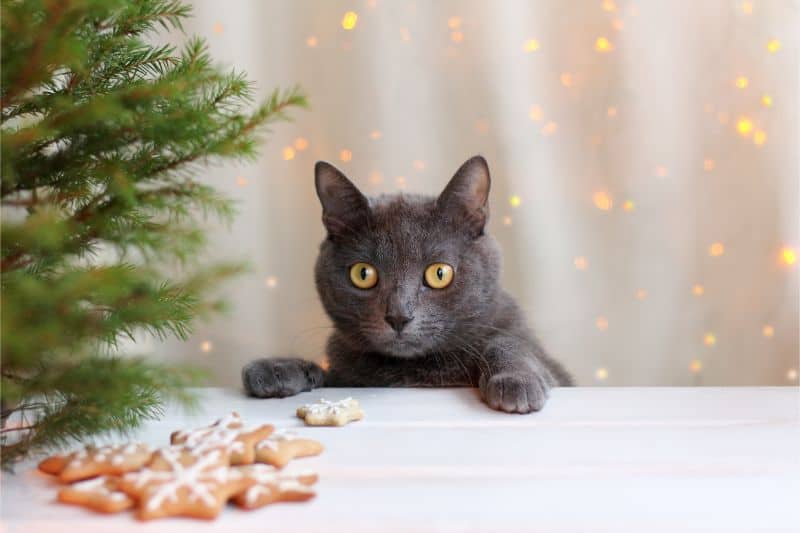Trim The Fat: Keeping Pet Winter Weight Gain At Bay

Many of us struggle with winter weight gain, and our pets may be no different. Whether the struggle lies in preventing it or shedding it afterwards, winter weight gain is a concern for pets because a few extra pounds can cause secondary health concerns like joint problems, diabetes, and even heart disease, to name a few.
Dupont Veterinary Clinic knows that winter is coming, and there’s no better time to prepare for how to keep pet winter weight gain at bay. Keep reading for our best tips and ideas.
The Root Of The Problem
Pet winter weight gain has its roots in evolution. As the temperatures drop, our metabolism and activity level tends to drop as well, both evolutionary preservation methods.
Add to that the tendency to make and consume heartier and larger meals at home, and our tendency to share those meals with our pets, and it’s no surprise our pet friends can easily pack on the pounds in the winter.
Amazingly, pet obesity occurs in over 50% of cats and dogs, and obesity can actually shorten a pet’s life span. So it’s important to keep our pets lean so they can stay healthy and happy for longer.
Preventing Pet Winter Weight Gain
Pets in good shape can keep trim and fit through the winter with a regular exercise routine. Help your pet stay active with games like indoor fetch, laser pointer tag, or take it outside for a hike in the snow or a romp in the backyard drifts. For cats, consider adding some vertical perches and encourage climbing with toys and play. Make sure your pet stays active, even in the depths of winter, to stave off pet winter weight gain.
Weight Loss In the Winter
If your pet is overweight, you may have ideas about how to help her shed pounds. Before you embark on a weight loss plan, however, it’s a good idea to examine any root medical causes of weight gain. Schedule an appointment with us to make sure nothing else is contributing, and so we can look at your pet’s body condition score together. We can help you tailor a weight loss plan that is appropriate and individualized for your pet and her lifestyle, age, and breed.
There are a few easy ways to trim the fat while you’re waiting for the spring thaw. Here are a couple of tips and tricks you can use at home to keep everyone from pet winter weight gain.
Limit treats. Believe it or not, even single ingredient treats can add on the calories if given frequently enough. Make sure you know what your pet’s daily calorie intake should be, and make sure you’re adding in the treat calories to the total. If you need healthy alternatives but don’t want to disappoint your pet, try raw carrots, apples, or steamed green beans. Many pets love fruits and veggies, and the calorie counts are far less than store bought pet treats.
Measure food. One sure way to limit pet winter weight gain is to use the measuring cup. Your veterinarian can tell you exactly how much food your pet needs to consume each day. Once you know, it’s simply a matter of measuring each meal before you dish it out. Make sure everyone in your family is on the same page.
Slow it down. Some pets gobble down their dinner in seconds flat and look up at you for more. Slow them down and help them spread out the love with an interactive puzzle feeder, by hiding their meal in different spots around the house (great for nose work!) or breaking up the meal into several smaller portions.
Nix holiday fare. Aside from packing on the calories and pounds, many traditional holiday foods are toxic to pets. If you wish to share the love with your pet, try an extra grooming or petting session, a special walk together, or surprise them with more playtime each day. You could even add some volunteer time to your schedule. Your pet will love the special attention from you, and won’t be at risk for GI upset or pancreatitis.
Adjust calories to be consistent with activity. When your pet is simply not getting as much activity, it’s best to limit their intake to maintain a healthy weight. When modifying your pet’s diet, we recommend decreasing their caloric intake by 10% at a time.
If you have any questions or concerns about preventing pet winter weight gain, please call us. Please talk to any of our doctors for personalized advice based on your pet’s medical history before any radical diet change.
